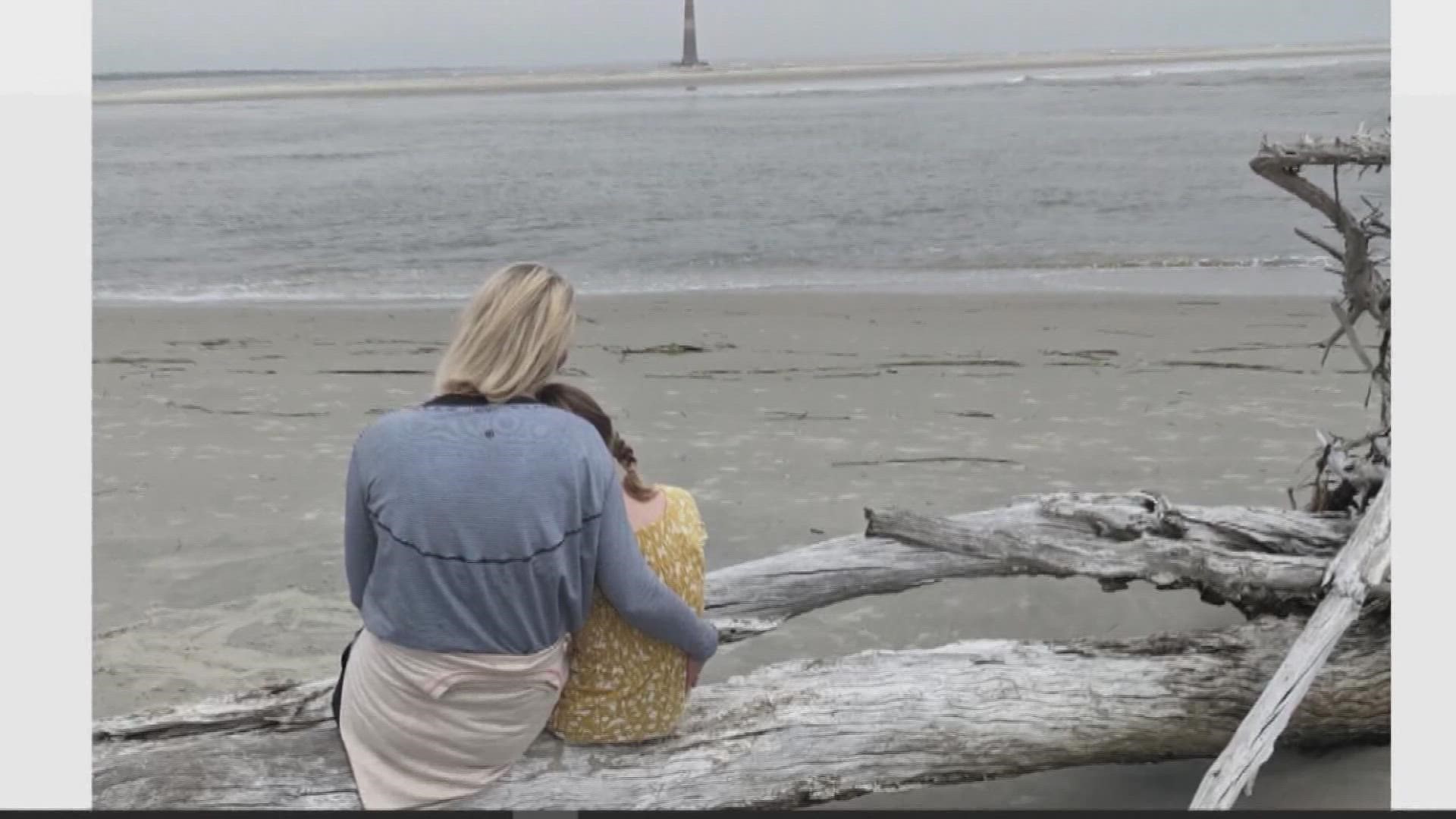KNOXVILLE, Tenn. — As Pam Bishop sat on the couch in her West Knoxville home, she read aloud an essay she penned about her life that a virus upended.
“Before I contracted COVID-19 in December 2020, I was what my 11-year-old daughter calls ‘Active Mom,'" the essay said. "I ran a research center at a local university, taxied my daughter and son to practices and games, managed my family’s social calendar, and ran the household.”
Those are memories now that COVID-19 now runs her life. When she carts her kids to games these days, she’s not cheering in the stands. Instead, the mother of two children is finding a place to lay down after it feels like her strength was sapped.
As her children rack up points for the team, their mother is battling fatigue and exhaustion. While coworkers and friends may go on walks in a park, Bishop's lungs may struggle to gasp enough air for her to keep going.
“It’s hard, I miss a lot," she said. "I make it my goal to get them where they need to go. But that’s about all I can do. Then we come back home, I go to bed.”
Pam Bishop is facing symptoms of long COVID-19. In most other cases, the symptoms of a coronavirus infection can be debilitating and last for months. In Pam’s case, they have lingered for around two years.
More than a third of COVID-19 survivors will develop lingering problems, according to some earlier studies. Theories about its causes included autoimmune disorders and micro-clots.
In January, WBIR's cameras followed Bishop to Vanderbilt Medical Centers’ Long COVID clinic. Doctors diagnosed her with a disorder that affects blood flow brought on by the virus.
“It explained a lot of my symptoms," she said. "It doesn’t explain all of my symptoms. It does explain some of my more scary symptoms like feeling like I’m going to pass out.”
Pam still suffers from a long list of symptoms including joint pain, brain fog and chronic fatigue. She’s learning to manage them while mourning her life before testing positive for COVID-19. On June 5, she posted on Twitter how her life is now “completely unrecognizable."
“The day was significant to me because it signified a year and a half of my life gone from what it was supposed to be.," she said. "A year and a half of waking up every single day sick."
The tweet garnered around 20,000 likes, around 3,000 retweets, and hundreds of comments. She went on to pen an essay, “Weeping for my children’s loss of the mom they had." It landed on NBC’s Today Show website.
She reads from the essay about how the coronavirus has stolen from both her and also her family.
“We had a future. We knew our roles in the family. Then COVID hit and everything was turned upside down," she said. "The pandemic was already difficult for the children then their mom got sick and never got better.”
Through her posts, Pam is growing a support system of people facing similar long-term symptoms. They connect on social media and computer screens. They share symptoms, concerns, and the latest medical research on what remains a medical mystery.
“Going through this is really hard," she said. "Going through this alone seems like it would be impossible. I don’t know how people are doing it without some sort of community.”
It's a community that now numbers in the millions. Each member shares Pam’s singular hope, which she sums up in the last paragraph of the essay.
“I hope more doctors and researchers work to understand long-COVID and find better treatments and even a cure," it said. "We could use a little hope.”
Pam looks up from reading, wipes a tear, sighs and said, “it’s tough."

